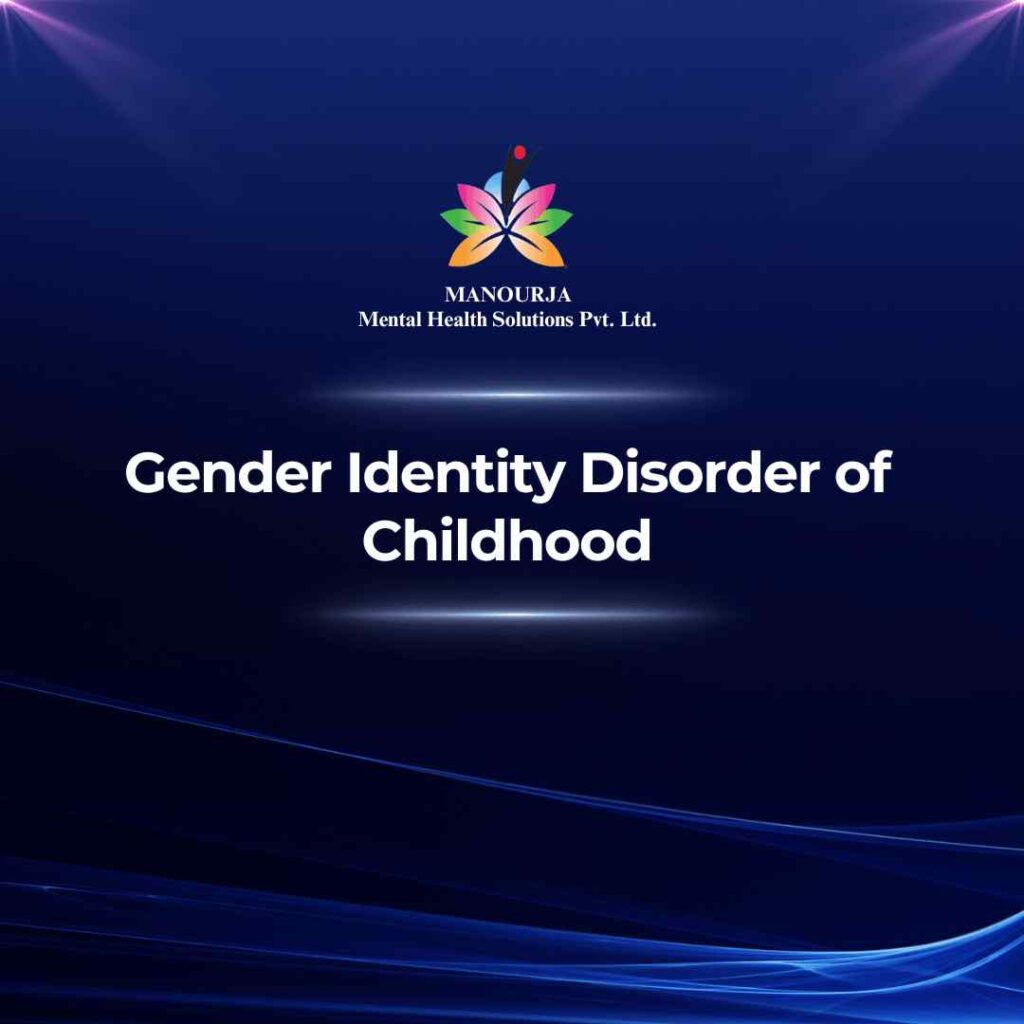Gender Identity Disorder of Childhood

“Gender Identity Disorder of Childhood” was a diagnostic category previously used to describe children who consistently and intensely identified with a gender different from their assigned gender at birth and experienced significant discomfort with their biological sex. This term has largely been replaced by “Gender Dysphoria” to shift the focus from the identity being disordered to the distress that may accompany such a difference.
Meaning and Characteristics
Gender Dysphoria in Children includes a marked incongruence between one’s experienced/expressed gender and the gender typically associated with their sex assigned at birth, lasting at least six months. In children, this can manifest in desires to be of the other gender, preference for cross-gender roles in make-believe play, strong preferences for toys, games, or activities stereotypically used or engaged in by the other gender, and a strong dislike of one’s sexual anatomy.
Characteristics typically include:
- Persistent Assertions: Children may consistently insist that they are, or desire to be, the opposite gender.
- Strong Preferences: They often show a strong preference for wearing clothes typical of the opposite gender and may express a strong rejection of toys and games typically associated with their assigned gender.
- Intense Desire for Cross-Gender Roles: Children may prefer playing roles of the opposite gender in make-believe play.
- Discomfort with One’s Body: They may express dissatisfaction or discomfort with their anatomical sex and show distress about anticipated secondary sexual characteristics (e.g., facial hair in assigned males or breast development in assigned females).
Forms
Gender dysphoria can vary widely among children, not only in terms of how it is expressed but also in the intensity and persistence of the gender nonconforming behaviors and identification. Some children may express a desire to be another gender through verbal statements, while others may demonstrate this through their preferences and behaviors more subtly.
Treatment
The approach to treating gender dysphoria in children focuses on supporting the child’s psychological well-being and ensuring they feel accepted and understood. Treatment options might include:
- Psychological Counseling: Therapy can help children understand their feelings and help families support their child’s gender expression.
- Family Therapy: This can assist the family in coping with and supporting the child’s gender identity issues, ensuring that the child feels supported at home.
- Social Transition: Depending on the child’s needs and the family’s decision, social transition might involve changes in name, pronoun usage, clothing, and the role the child assumes at home, in school, and in other social settings.
- Monitoring for Later Medical Intervention: In some cases, as children approach puberty, they might be candidates for medical interventions (like puberty blockers) that delay the physical changes of puberty, giving them more time to explore their gender identity in consultation with medical professionals and mental health providers.
Ethical and Social Considerations
Dealing with gender dysphoria in children involves sensitive ethical and social considerations. Primary among these is the importance of providing care that respects the child’s developing sense of self while also balancing their current and future physical and psychological well-being. Interventions should be cautious and reversible, particularly with very young children, to allow open-ended exploration of their gender identity as they mature.
It’s crucial for interventions to be guided by trained professionals in child psychology, psychiatry, and pediatrics who specialize in gender identity issues. The overarching goal should be to support the child’s psychological health and ensure that they grow up feeling authentic and accepted for who they are.
At MANOURJA, we believe in the transformative power of counseling. Our experienced therapists offer a safe and supportive space where you can explore your thoughts, emotions, and challenges. Through personalized counselling sessions, we’ll work together to develop coping strategies, build resilience, and achieve lasting positive change. Discover the path to a healthier, happier you with MANOURJA counselling services.
MANOURJA Rehabilitation Services
At MANOURJA, we’re dedicated to helping you in rebuild your life, after difficult times. Our rehabilitation services focus on understanding what you need to move forward, whether you’re recovering from addiction, trauma, or any psychological – social challenges. We create personalized plans, that are all about helping you, regain your strength and find hope again. With a caring team by your side, you’ll have the support to make real progress and take steps toward a brighter, healthier future.
